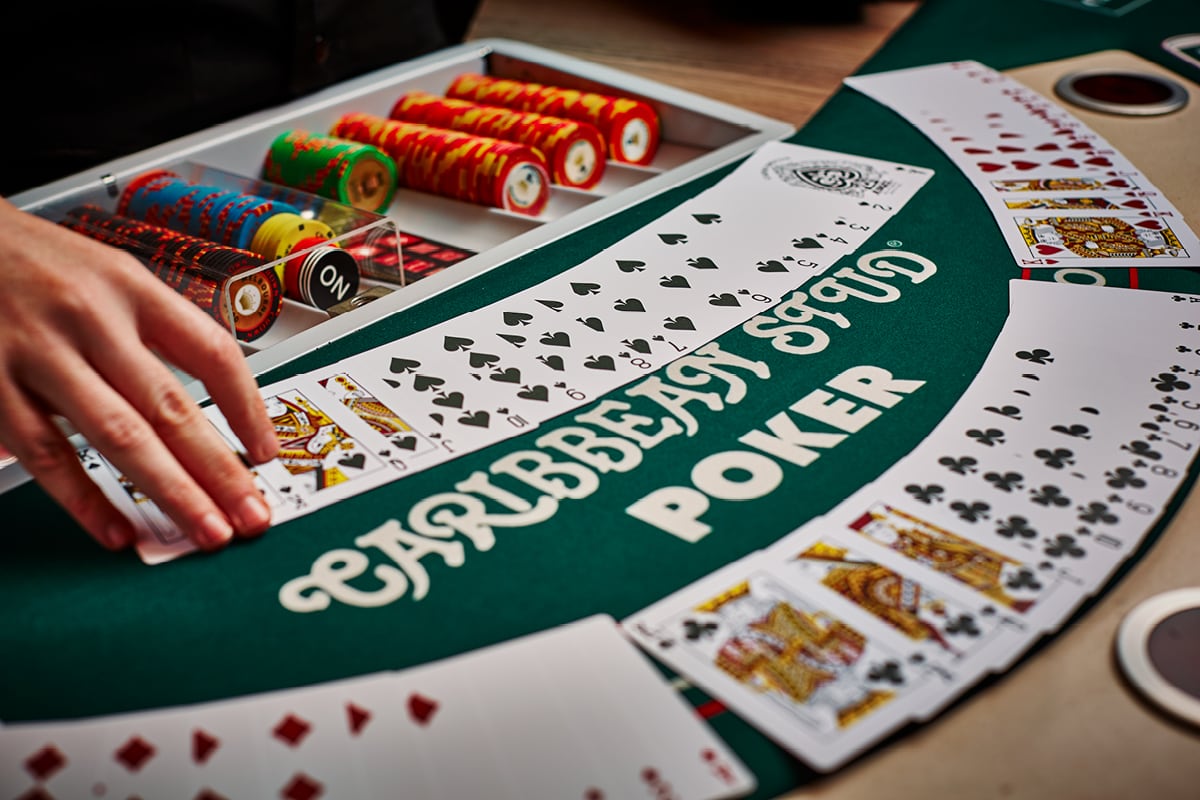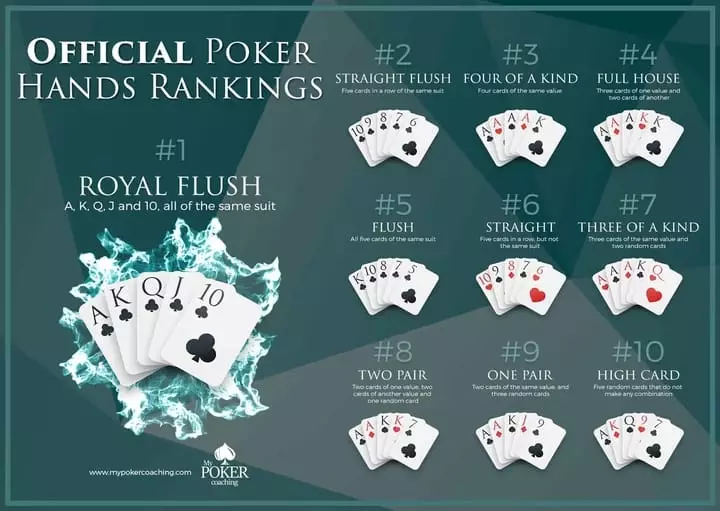Caribbean Stud Poker is possibly one of the best-known poker variations played against the house.
While the exact origins of this game remain unclear, it is worth noting that David Sklansky, a renowned author of poker books, asserts that he was the inventor in the early 1980s.

Setting aside its historical context, Caribbean Stud appeals to both casual gamblers and poker enthusiasts alike. The game offers elements reminiscent of traditional poker but without the need for extensive contemplation or exertion.
The rules of Caribbean Stud are straightforward, as you will discover in this piece, making it easy to grasp. This game does not demand excessive skill or strategy, allowing you to play optimally by following a few simple guidelines.
Nonetheless, it is essential to note that even with the best possible strategy, the house maintains an edge of over 5%. In comparison to other table games such as blackjack, roulette, Three Card Poker, and even Ultimate Texas Holdem, this represents a relatively high house edge.
Despite this, Caribbean Stud poker can provide an enjoyable experience, particularly when played with a group of friends, and it offers the potential to win significant jackpots.
Caribbean Stud Poker – Poker Rules
Before engaging in a game of Caribbean Stud, familiarizing yourself with poker hand rankings is crucial.
If you have experience with popular poker variations such as Hold’em, Omaha, Stud, or Five Card Draw, you should be well-prepared. Hand rankings range from high card (lowest) to royal flush (highest), with no consideration given to suits.
Similar to other table games, Caribbean Stud is a contest against the house. While multiple players can participate simultaneously, their primary objective is to outperform the dealer.

Interestingly, players can actually support one another, as a fellow player achieving a strong hand benefits the entire table without adversely affecting individual outcomes.
At the beginning of each hand, players are required to place their ante in the designated area. The dealer then deals five cards to each player, face down, while also taking five cards for themselves. However, one of the dealer’s cards is revealed face up for all to see. Following this, players can examine their own cards and make their choices.
It is worth noting that displaying your cards to fellow players is strictly prohibited. Although most casinos may overlook an accidental or playful instance of card showing, repeated infractions can lead to consequences.
Sharing card information with other players is considered cheating in this game, as it grants an unfair advantage to those involved.
Upon reviewing your hand, you will have two straightforward options:
- Fold: Surrender your ante.
- Play: Place a bet equivalent to twice the ante.
Once all players have made their decisions, the dealer reveals their remaining cards and proceeds to distribute winnings accordingly.
Payouts
Upon revealing the cards, the dealer proceeds to compare their hand with each player’s hand at the table.
If a player’s hand is stronger than the dealer’s, they will receive a 1-to-1 payout on their ante. However, for the “Play” amount, a 1-to-1 payout is only granted if the dealer qualifies, meaning they possess an Ace-King or better hand.
In the event that the dealer fails to qualify, players will be paid on their ante, but their play bets will be returned without any profit.
It is possible to receive payouts greater than 1-to-1 on the “Play” bet. If a player is dealt a hand of two pairs or better, the following table determines the payouts:
- Two pairs pay 2-to-1.
- Three of a kind pays 3-to-1.
- A straight pays 4-to-1.
- Flushes pay 5-to-1.
- Full houses pay 7-to-1.
- Four of a kind pays 20-to-1.
- Straight flushes pay 50-to-1.
- A royal flush pays 100-to-1.
However, these payouts are only awarded if two conditions are met:
- The dealer holds a qualifying hand.
- The player’s hand surpasses the dealer’s hand.
For instance, if a player is dealt a hand of Aces full, but the dealer reveals quads, the player will lose the hand and not receive any payouts.
Unlike certain other poker variations in casinos, Caribbean Stud does not offer standalone bets that pay out regardless of the outcome, except for the progressive jackpot.
<Casino Introduction – Crypto Sports Betting Sites>
Caribbean Stud Poker Jackpot
Many reputable casinos provide players with the opportunity to place independent bets on the progressive jackpot, ensuring a constant availability of games when selecting operators from a list of genuine casinos.
Typically, the qualifying bet for the jackpot associated with any particular hand is a mere $1 and is unrelated to the stakes in the main game.
Approximately 70% of each dollar wagered contributes to the progressive jackpot pool, while the remaining portion is retained by the casino.
While it may initially appear unfavorable, the casino must allocate a portion of the jackpot money to seed the next jackpot when a player emerges victorious. For instance, a jackpot can commence at $10,000, which serves as the initial amount funded by the casino.
To claim the jackpot, one must be dealt a royal flush in any suit. Should fortune favor you in this regard, you will instantly receive the entire jackpot. In the event of a straight flush, a player will be awarded 10% of the jackpot.
Depending on the specific casino, smaller hands such as four-of-a-kind and full houses may also qualify for a payout, although these amounts are typically modest.
As always, it is important to acknowledge that jackpot bets do not offer favorable odds from a mathematical standpoint, but they undoubtedly heighten the excitement. The anticipation builds as you gradually reveal four cards towards a potential royal flush, causing hearts to race faster with each suspenseful moment.
Caribbean Stud Poker is not primarily played for its lucrative returns; instead, players indulge in the game for its entertainment value, with the jackpot element adding an extra layer of excitement.



